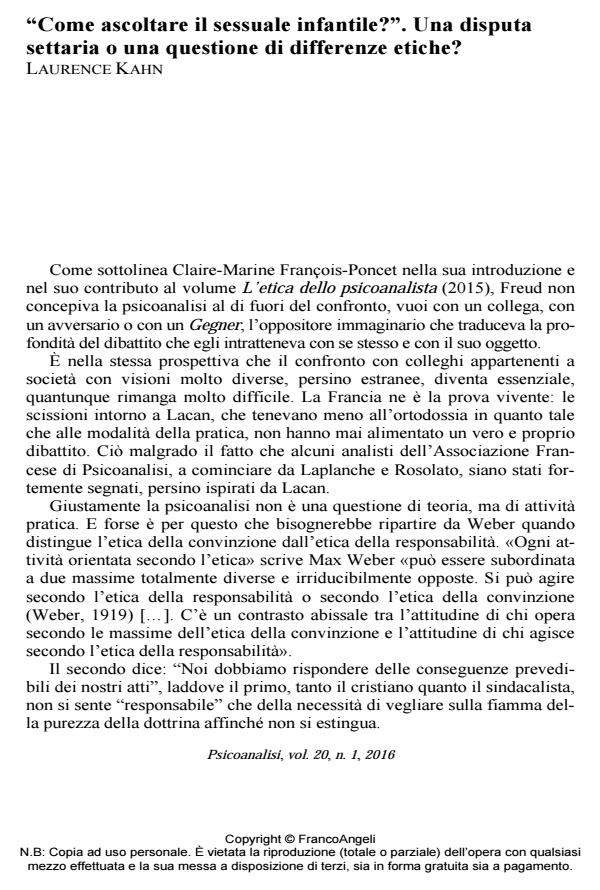"Come ascoltare il sessuale infantile?". Una disputa settaria o una questione di differenze etiche?
Journal title PSICOANALISI
Author/s Laurence Kahn
Publishing Year 2016 Issue 2016/1
Language Italian Pages 12 P. 9-20 File size 172 KB
DOI 10.3280/PSI2016-001002
DOI is like a bar code for intellectual property: to have more infomation
click here
Below, you can see the article first page
If you want to buy this article in PDF format, you can do it, following the instructions to buy download credits

FrancoAngeli is member of Publishers International Linking Association, Inc (PILA), a not-for-profit association which run the CrossRef service enabling links to and from online scholarly content.
The "coldness" encouraged by Freud for the analysis - topic of debate between various analytical currents - is closely related to the method of free association and floating attention; the "indifference" defines a listening of psychic events freed from any finalized representation. This vision, favoring a state of "calm" that, beyond any pathos, allows the analyst to facilitate the transfert process, aims to deconstruct the concretions favored by the resistance, and it tries to bring out aspects of the repressed infantile sexuality. The author examines the guidelines of more analytical currents concerning this device and its theoretical basis.
Keywords: Indifference, free association, floating attention, coldness, infantile sexual, unconscious sensitivity, counter-transfer
Laurence Kahn, "Come ascoltare il sessuale infantile?". Una disputa settaria o una questione di differenze etiche? in "PSICOANALISI" 1/2016, pp 9-20, DOI: 10.3280/PSI2016-001002